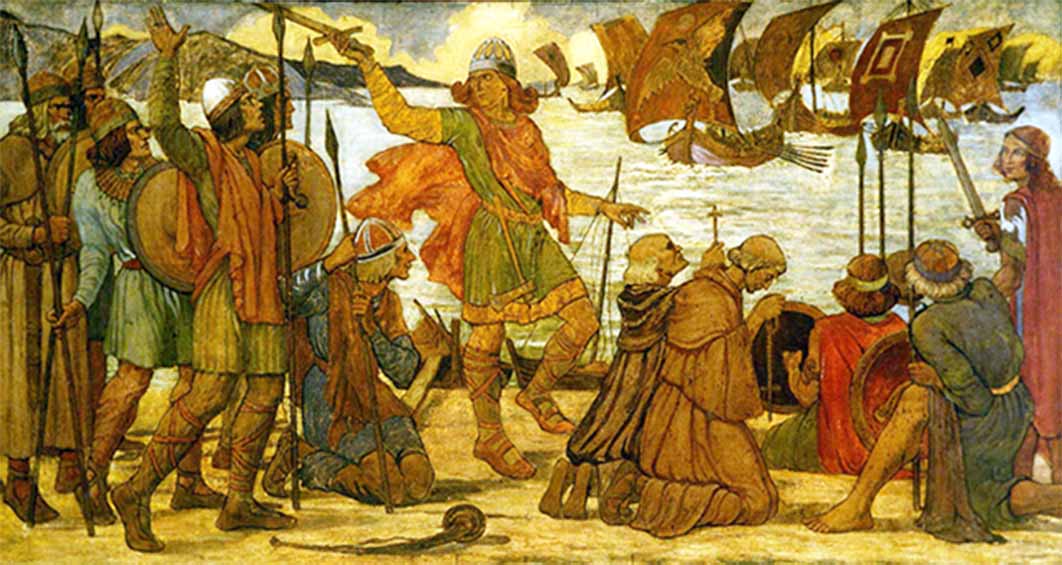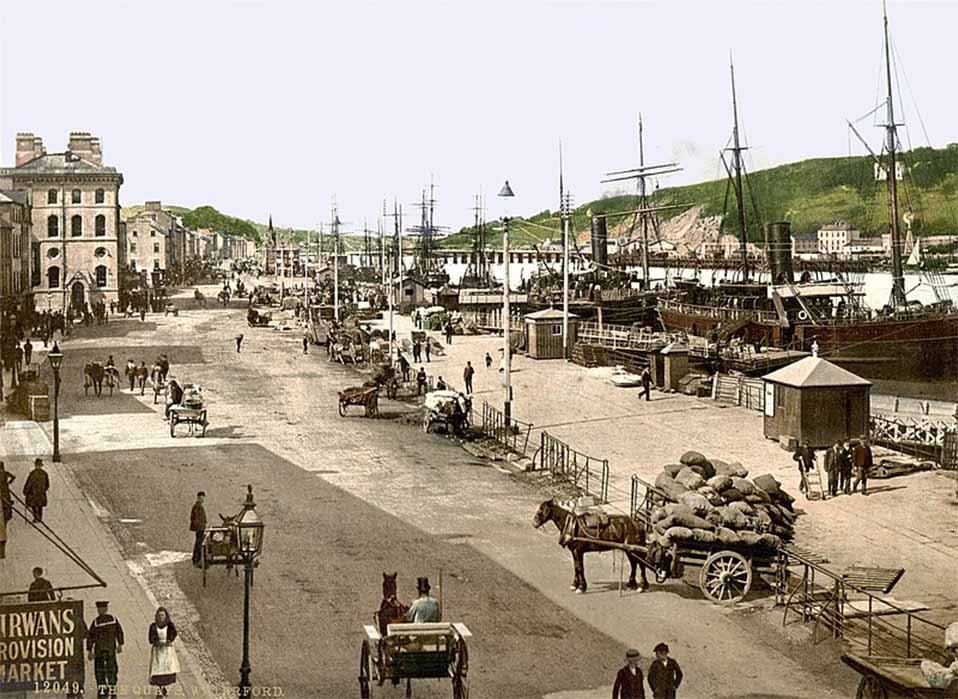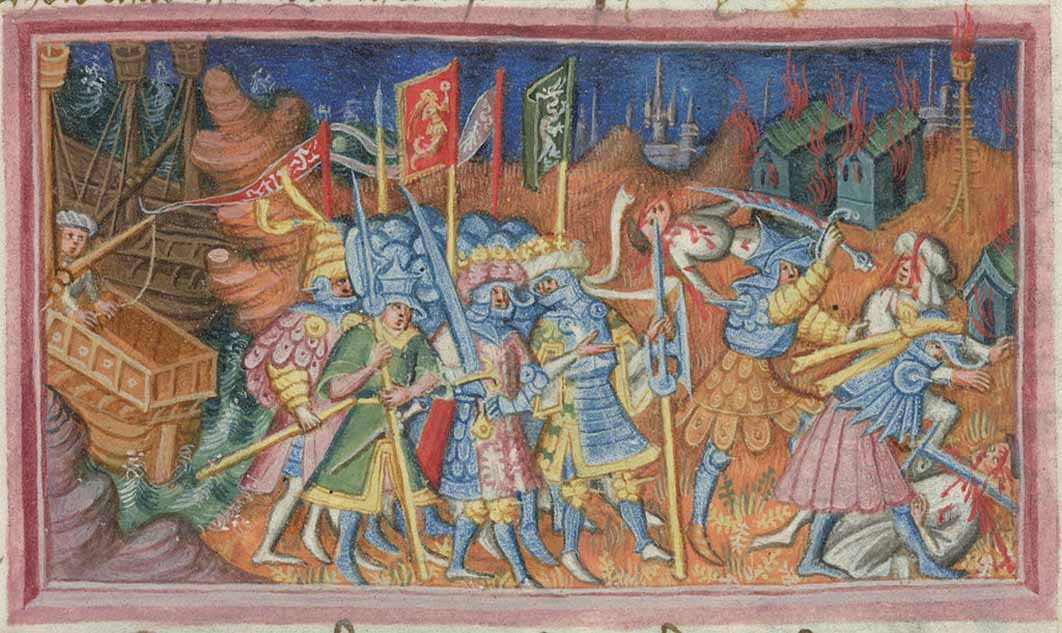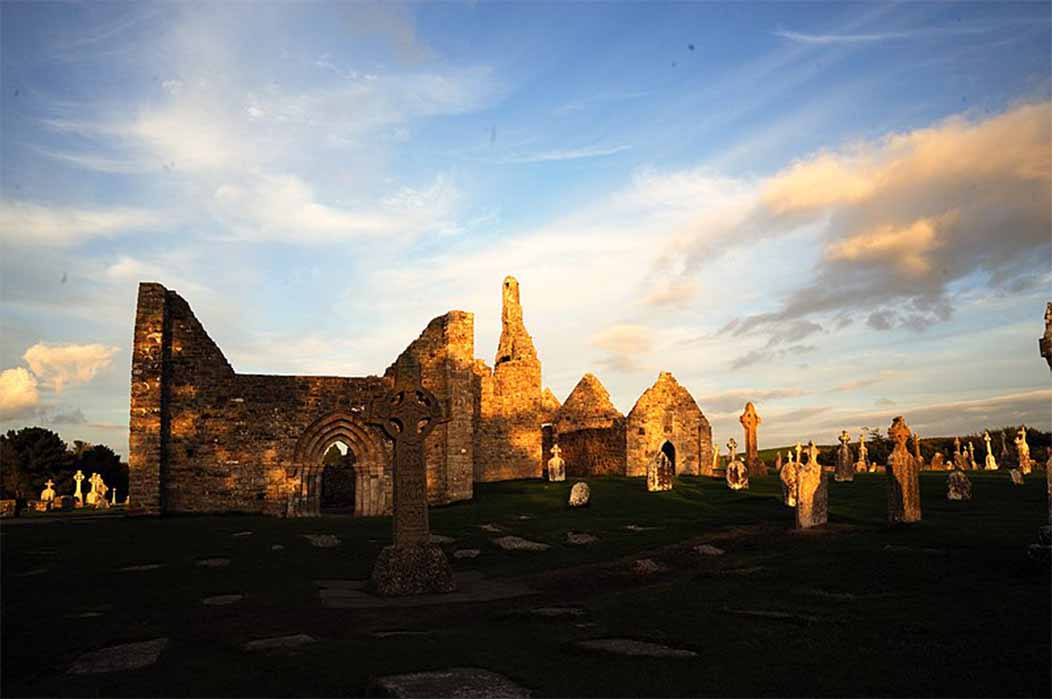
Traces Of Viking Ivar the Boneless’ Dynasty At Waterford, Ireland
County WexfordThe first Viking raids recorded in Ireland date to 795 AD, and then they rapidly appear in the historic record. Traditionally the early Viking activity in Ireland falls into three phases, the first being a period of lightning hit-and-run raids which took place from the 790’s until the 820’s. This was followed by a phase of intensive Viking campaigning in the area dating to the 830’s when the Annals first begin to mention the presence of Viking bases known as longphorts - literally ship ports. This phase then ends in 902 when the Ui Imar (the Viking Dynasty founded by Ivar the Boneless) is expelled from Dublin, and many of the longphorts are thought to have been destroyed by Irish kings at this time. This then leads to a period during which more permanent Viking bases were established.

The quay at Waterford c. 1890–1900 (Public Domain)
Viking Presence in Waterford
The Irish city of Waterford lies in Co Waterford on the southeastern shore of Ireland in the province of Munster, on the river Suir at the point where it meets the Irish Sea. Waterford is the oldest city in Ireland and once bore the Norse name Veorafjoror, which means “ram fjord” for this earliest settlement was a Viking one. Over the past 50 years archaeology has revealed that Viking Waterford was focused on two areas. The first being the more widely known Viking Triangle located at the center of the modern city, the second being the earlier settlement harbor of Woodstown, six kilometers (3.7 miles) away. This was a longphort, a harbor and winter base, that only came to light during archaeological work undertaken in 2003 ahead of a road building project.
Traditionally it had been thought that Waterford was founded by a Viking chieftain called Sitric in 853 BC based upon the 12th-century account of Gerald of Wales. Gerald recounts that this was also the same year in which Limerick was founded by Ivarus and Dublin by Amlavus. Gerald tells that these three brothers were granted permission to found the harbors in Ireland for the purpose of commerce, adding that this was because they were too lazy to travel in order to trade. However, this tale must be taken as being rather apocryphal given that it was being written to deliberately discredit the Irish and that Gerald was writing much later after the events. The Welsh Annals: Ystoria Gruffudd ap Cynan offers an alternate tale whereby the lands around Waterford were granted to a brother of the Norwegian king Harold Finehair to rule. Again, given the 13th-century date of the account there is reason to doubt its veracity but the fact that the Welsh Annals are recording events in Waterford, speaks to the area's continued importance throughout the centuries as a trading port.

A 15th-century depiction of Ívarr and Ubba ravaging the countryside, in British Library Harley (Public Domain)
Evidence from the Irish Annals suggests that there were Vikings in the area of Waterford by the 800’s as during one raiding campaign it is recorded that they killed one Cuilen, son of Cerball. During this time Vikings raids on East Anglia, Northumbria and Mercia were causing widespread panic and destruction. However in Ireland these raids seem to have been initially less devastating and had less immediate impact. The raids gained strength in the mid 800’s under Turgeis, a great Viking chief who appears briefly in the Annals of Ulster as having been captured by Mael Sechnaill mac Maele Ruaniad who was termed the High King of Ireland, and later under Ivar the Boneless, son of the semi legendary Ragnar Lothbrook, who is said to have founded the Ui Imar Dynasty in Ireland in the mid-ninth century.

Clonmacnoise early medieval monastery situated in County Offaly in Ireland was raided repeated by Vikings including Turgeis (JohnGill / CC BY-SA 4.0)




